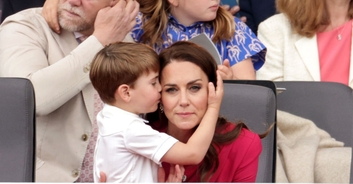Christopher Robin, the 70-million-dollar family movie of the year, follows the protagonist of Winnie the Pooh as he grows up and moves to boarding school. However, while the film is currently showing all over the world, it is notably absent from the world’s biggest country.
China is known for its censorship. In an effort to maintain traditional values and not bow to the influence of western culture, many movies in China simply aren’t released. However, where the Christopher Robin movie is concerned, the situation is a little different.
In July last year, Wang Xiaochuan - the CEO of China’s search engine Sogou - posted an image of Winnie the Pooh on his Weibo account to his 2.7 million followers with the caption “Little Pooh”.
Yet one commenter stated: “You’ve got balls to post this.” Another asked: “Won’t this cause trouble for your company?” Then: “Aren’t you scared to post something so sensitive?”
President Xi Jinping, the seventh President of the People's Republic of China, has been compared to Winnie the Pooh to the extent that it has really got under his skin. In fact, the Chinese government’s control of information has reared its ugly head, through the ocean of pixels and cat videos, into the world of social media.
The Guy Fawkes mask, as popularised in the film V for Vendetta and subsequently used by hacker group Anonymous, has become a symbol of political resistance in the west. In China, however, it is a loveable, honey-obsessed bear from a children’s book.
Though Chinese citizens can find Winnie the Pooh via the internet, there are countless cases of the bear - and mentions of him - being removed from Weibo and Wechat. “My posts about Winnie have already been removed 5 times, so it’s really true,” one blogger said.
However, in a country known for its censorship, the government’s efforts to suppress the cartoon character proved counter-intuitive - sparking a “bear hunt” where curious internet users would deliberately post images of Pooh to see if they would be removed.
It’s thought that the comparisons began back in 2013 when Xi Jinping met with former US president Barack Obama. A picture of Winnie the Pooh with Tigger next to the two politicians went viral but was soon taken down.
In September of 2015, during the Beijing Parade that commemorated the 70th anniversary of WWII, President Xi Jinping drove around in a car and waved from a sunroof. An image comparing him to a Winnie the Pooh toy then began trending on the same day.
The game of cat and mouse bear certainly isn’t the first example of China’s internet-borne civil disobedience. A phenomenon known as Grass Mud Horse swept blogs, forums and social media back in 2009.
Though it is spelt differently, the three-character phrase “cao ni ma” (草泥马) is pronounced in the same way as “f*ck your mother”. As is customary on the internet, the phrase therefore went viral, it having been decided that a grass mud horse was a sort of mythical creature. Artist Ai Weiwei even created images of himself riding said mud horse or using the horse to cover his modesty.
In a book entitled Batman, Pandaman and the Blind Man: A Case Study in Social Change Memes and Internet Censorship in China, An Xiao Mina notes: “the grass mud horse became ‘an outcry against the very policies that forced it to become a secret symbol’”.
The recent death of Chinese dissident Liu Xiaobo is thought to have caused a further clampdown on freedom of speech. However, as the censors were closing in, Prime Minister of Japan Shinzō Abe met President Jinping in a somber, frosty meeting. The pictures reflected this and so a new meme was born.
As these pictures of Pooh disappeared, to poke some ironic fun at the situation, people posted pictures of Pooh in order to say goodbye to him. Again, the more the bear was censored, the more the public fought back. But signs of the censorships efforts have even washed up on foreign shores. If you search for images comparing Jinping to Pooh on Twitter, there's a good chance it will have been marked as "sensitive" material.
There is much debate about whether the hugely limited number of films released in China is due banned themes, resisting westernisation or there simply being a set maximum.
Regardless, it is centred on preserving the status quo and this movie microcosm is reflective of the bigger picture - of disinformation, censorship and human rights abuses. So if President Jinping looks like a benevolent leader, or a cuddly bear, there is actually a far darker truth below the surface.












